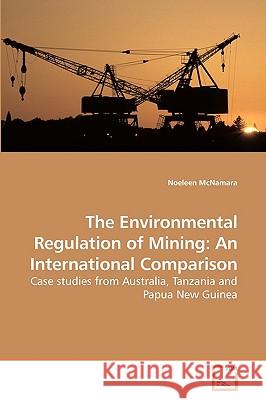The Environmental Regulation of Mining: An International Comparison » książka
The Environmental Regulation of Mining: An International Comparison
ISBN-13: 9783639243314 / Angielski / Miękka / 2010 / 248 str.
Over the past 15 years, significant sectors of the mining industry have undertaken the Global Mining Initiative. This was followed by an extensive program called the Mining, Minerals and Sustainable Development Project. These self regulatory mechanisms require 'beyond compliance' environmental behaviour, whether companies are operating in the developed or the developing world. At the same time, scrutiny of the mining industry by Non-Government Organisations and the media in general has increased, and in some cases these bodies may act as 'de facto regulators'. Reviewing case studies of gold mines operated by the 'top tier' transnational mining companies in Queensland, Papua New Guinea and Tanzania, this work addresses whether these and other self regulatory mechanisms are more important than formal legislation in motivating compliance with environmental laws for these mining companies.
Over the past 15 years, significant sectors of the mining industry have undertaken the Global Mining Initiative. This was followed by an extensive program called the Mining, Minerals and Sustainable Development Project. These self regulatory mechanisms require beyond compliance environmental behaviour, whether companies are operating in the developed or the developing world. At the same time, scrutiny of the mining industry by Non-Government Organisations and the media in general has increased, and in some cases these bodies may act as de facto regulators. Reviewing case studies of gold mines operated by the top tier transnational mining companies in Queensland, Papua New Guinea and Tanzania, this work addresses whether these and other self regulatory mechanisms are more important than formal legislation in motivating compliance with environmental laws for these mining companies.











